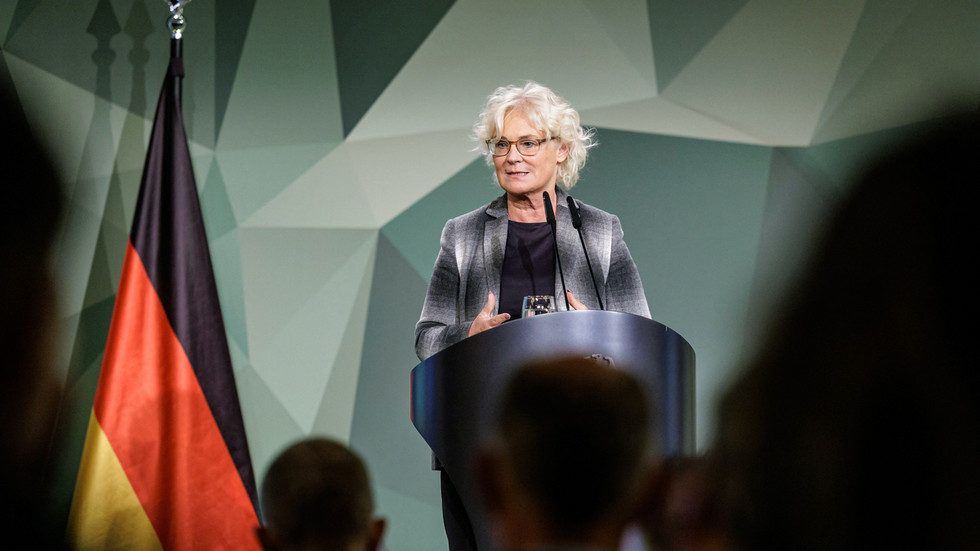But the future for newly-anointed Prime Minister Anwar Ibrahim remains uncertain. He will have to work with a range of uneasy allies, even as major economic challenges loom for the nation.
Here’s everything you need to know about the new administration, the tangled web of alliances and what happens next:
How did we get here?
Five days after national elections returned a hung parliament, Malaysia’s King Sultan Abdullah Sultan Ahmad Shah had the final say in picking Anwar as the nation’s next prime minister. He was forced to make a decision after the country’s major political alliances each failed to win more than 111 seats necessary to command a majority in parliament.
The king first asked the leaders of the two largest blocs — Anwar’s Pakatan Harapan alliance and the pro-Malay grouping Perikatan Nasional, led by ex-premier Muhyiddin Yassin — to form a unity government. Muhyiddin refused, throwing the process into a stalemate and forcing the king to use his constitutional powers to make the final decision.
Who is Malaysia’s next prime minister?
While Anwar has long been a mainstay in Malaysian politics, he has long fallen short of his ambition to become prime minister. As former finance minister and deputy to the country’s longest-serving prime minister, Mahathir Mohamad, his political rise was cut short after he was fired in the wake of the 1997 financial crisis following a fall-out with Mahathir. He was subsequently expelled from the United Malays National Organization (UMNO), which has dominated Malaysian politics since independence in 1957, and spent time in jail on charges of abuse of power and sodomy, which he denied and said was politically motivated.
In 2015, he was again jailed for five years on sodomy charges but was pardoned by the king in 2018 following his alliance’s shock election win, after a brief reconciliation with Mahathir. But delays by Mahathir in handing over the reins of the premiership, as well as policy disputes and party defections meant that the government eventually collapsed in 2020, returning the Pakatan Harapan to opposition.
What are the country’s main political alliances?
— Pakatan Harapan: Led by Anwar, the largest bloc in the election won 82 seats in the election, rallying support from urban and educated voters over its progressive agenda and commitment to tackling economic woes. However, one major obstacle to its coalition-building efforts has been its largest member, the Democratic Action Party (DAP). While popular among the sizeable Chinese population, other parties have traditionally
rejected working in an alliance containing the DAP due to concerns it wants to dismantle preferential treatment for Malays and indigenous peoples — which make up nearly 70% of the population — in favor of a scheme that benefits all ethnic groups. Other alliance members include the People’s Justice Party, the National Trust Party and the newcomer Malaysian United Democratic Alliance.
— Barisan Nasional: The alliance dominated by UMNO has long held an out-sized role in Malaysian politics, having formed every government from independence until 2018. However, it suffered in the polls in 2018 after its Malay base turned away from the party following a slew of corruption allegations against leaders — most notably Prime Minister Najib Razak’s role in the corruption scandal involving Malaysian sovereign wealth fund 1MDB. While Najib is now behind bars, UMNO leaders including party president Ahmad Zahid Hamidi still face dozens of corruption lawsuits. That contributed to another electoral battering, with the alliance clinching just 30 seats in Saturday’s election, its worst showing yet.
— Perikatan Nasional: The grouping comprises two main parties, Bersatu and the Parti Islam Se-Malaysia (PAS). The coalition is led by former Prime Minister Muhyiddin Yassin, who was instrumental in the downfall of the Pakatan Harapan government after leaving the alliance in 2020. The pro-Malay, Islamist coalition increased its number of seats to 73 this year, from 39 in the last parliament.
— Borneo parties: Three small parties dominate the island of Borneo, which has traditionally chafed at being neglected by policymakers in peninsular Malaysia. Gabungan Parti Sarawak won 23 seats (GPS); Gabungan Rakyat Sabah (GRS) won six; and Warisan just 3. But support from such parties, which often advocate for local interests may prove critical for legislation to be passed in a hung parliament.
What happens next?
While Anwar has been appointed the prime minister, he will have to garner and maintain support from parties often with varying interests. That means he faces a conundrum over which parties or alliances he chooses to involve in his ruling coalition.
Although the King has tasked him and other parties with a unity government, longstanding animosity may be difficult to overcome. Barisan Nasional has professed support for a unity government, but ruled out allowing Perikatan Nasional to lead it. In the case of Sarawak’s GPS, there is bad blood between the party and the DAP, after its leader Lim Guan Eng, during his time as finance minister in 2019, said the state of Sarawak would go bankrupt if it continued to be ruled by GPS.
Anwar has said so far that he has garnered the support of Barisan Nasional and some Borneo parties to form the government, and is ready to prove this with a confidence vote on Dec. 19 in parliament. It remains to be seen whether a professed willingness to include members of Muhyiddin’s coalition in the government — the ex-premier has questioned the amount of support for Anwar — will come to pass. At the same time, some key parties have taken public steps at rapprochement, with DAP leaders in Anwar’s coalition apologizing for past remarks about the Borneo-based party GPS, whose chairman accepted the olive branch.
What are the government’s immediate challenges?
Much will hinge on whether Anwar’s coalition will be able to address the economic woes which were front and center of the election campaign. While the economy is seeing a fragile rebound, voters are struggling with rising living costs and a weakening currency amid concerns of a global slowdown next year.
Anwar will also have to address the concerns of young Malay voters in rural areas, who were a major source of support for Perikatan Nasional. Many are seeking access to well-paid jobs to help them cope with the rising cost of living, according to Campbell White, the head of public affairs and polling for Asia-Pacific at YouGov. However, a pivot toward more ethnic-centric policies that can aid them risks backfiring with more progressive members of Anwar’s alliance.
Can the new government survive?
Malaysia has shuffled through various governments since the collapse of Mahathir’s administration in 2020, under the weight of a number of defections. Anwar’s administration too will start its life on shaky ground, facing significant pressure to keep other parties, which it has traditionally clashed with, onside for passing legislation.
Also looming in the background is concern over corruption. A possible role for Barisan Nasional in supporting the new government means the issue remains ready ammunition for opposition parties, and produces a new headache for Anwar, who has promised to lead a clean government. UMNO’s support for Anwar’s coalition may hinge on how he handles such issues.
What role will Islamist parties play?
PAS emerged from the election as the single party with the most seats, snatching a total of 49 as it touted the religious high ground over UNMO and other pro-Malay groups. The party has found support in mostly rural areas based on its promotion of an Islamist agenda that includes imposing sharia law and restricting the sale of alcohol across the country.
While it is still mulling joining Anwar’s government, even if it chooses not to, the party is likely to exert significant pressure on his administration, by opposing liberal policies that resonate with PAS’s growing voter base.














